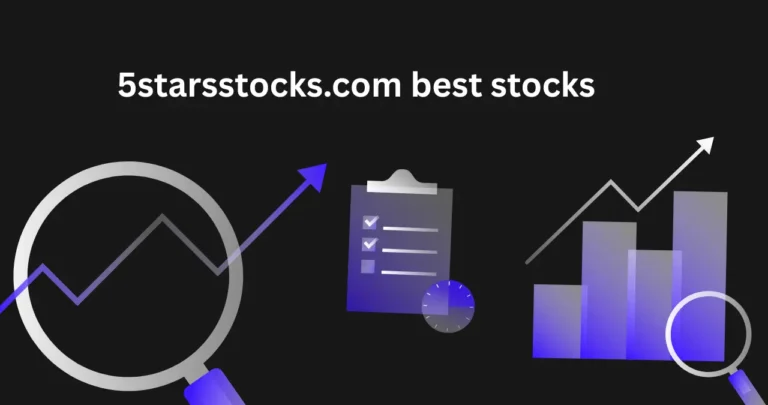Hugo Bachega Accent: Uncover the Mystery Behind His Unique Voice

Introduction
Hugo Bachega accent — it’s more than just a way of speaking; it’s a voice that instantly sparks curiosity. From YouTube comments to social media discussions, people everywhere are asking the same thing: “Where is that accent from?” and “Why does it sound so unique?” Whether you’ve seen his powerful reports on the BBC or stumbled upon his interviews online, Hugo Bachega’s voice is hard to forget.
In today’s media landscape, where accents are often flattened for a “global” sound, Hugo’s stands tall — clear, confident, and full of character. His accent doesn’t just reflect where he’s from, it reveals who he is: a global journalist with roots in Brazil and experience that stretches across continents. That mix of culture, language, and professional depth gives his voice a rich, memorable quality.
In this article, we’ll break down everything you need to know about the Hugo Bachega . where it comes from, how it sounds, why people are drawn to it, and how it influences his work. If you’re curious about voice, language, or global journalism, this is the deep dive you’ve been waiting for.
Let’s explore the story behind the accent that’s quietly stealing the spotlight.
Who is Hugo Bachega, and Why is His Accent So Captivating?
Hugo Bachega is a respected Brazilian journalist and international correspondent for the BBC. Known for his insightful coverage of complex global issues, Bachega has reported from conflict zones and political hotspots around the world. He brings clarity, calm, and depth to every story — but it’s his voice that often leaves the most lasting impression.
What makes his accent so captivating is how it challenges expectations. Most BBC viewers are used to standard British or American English, yet Bachega’s voice offers something completely different — a harmonious blend of Latin warmth and European precision. It’s this uniqueness that instantly grabs attention and holds it.
Where Does the Hugo Bachega Accent Come From?
To understand the roots of the Hugo Bachega accent, you need to start with his background. Hugo was born and raised in Brazil, a country where Portuguese is the official language. As a result, his native linguistic foundation comes from Brazilian Portuguese, a language known for its musical rhythm and expressive vowel sounds.
However, Hugo didn’t stay in Brazil. As a journalist, he has lived and worked in various parts of the world, particularly in English-speaking countries. This international exposure helped shape his English accent into what we hear today — a mix of Brazilian influence and neutral English pronunciation, most likely British-leaning due to his BBC affiliation.
His accent is the result of a life lived globally, influenced by different cultures, languages, and experiences.
How Does the Hugo Bachega Accent Actually Sound?
Describing the Hugo Bachega can be tricky because it doesn’t fit neatly into any one category. It’s not fully British, not completely American, and certainly not traditionally Brazilian when speaking English — it’s somewhere in between.
His voice has a soft, smooth cadence, likely influenced by Portuguese. He tends to articulate consonants clearly, especially in a British fashion — “t” and “r” sounds are sharp but not harsh. There’s also a subtle melody in his speech, possibly a remnant of Portuguese tonality. The result? An accent that feels calm, intelligent, and slightly exotic to English-speaking ears.
Listeners often describe his accent as “soothing,” “elegant,” and “unexpectedly charming.”
Why is the Hugo Bachega Accent So Special?
In a world of uniform media voices, the Hugo Bachega accent breaks the mold. Most TV reporters are trained to speak with a neutral accent — one that doesn’t distract or stand out. But Hugo’s voice does the opposite: it stands out because it doesn’t try to hide its roots.
It’s special because it feels personal. It carries the subtle story of a man who has lived across cultures, learned different languages, and retained pieces of each one. That authenticity adds emotional weight to the stories he tells. His accent isn’t just how he speaks — it’s a part of how he connects.
In a time when people are craving authenticity, Hugo’s voice delivers just that.
Do People Really Notice the Hugo Bachega Accent?
Yes, they do — and they talk about it a lot. Whether on YouTube comments or Reddit threads, viewers consistently mention Hugo Bachega’s accent as something that makes him stand out. Some ask where he’s from, others simply say how “cool” or “beautiful” his voice sounds.
This kind of natural audience reaction is rare. Most reporters blend into the background noise of the news cycle, but Hugo’s voice has created its own mini fan base. That kind of organic attention speaks volumes.
It’s not just an accent. It’s a signature.
Has Hugo Bachega Ever Tried to Change or Hide His Accent?
From all appearances, no. Unlike many non-native English speakers who work in English-language media, Hugo has never attempted to completely “neutralize” his accent. And that’s part of his charm.
By keeping his natural tone and rhythm, he sends a message of pride in his background and confidence in his voice. In fact, it may even enhance his credibility as a global journalist — someone who isn’t trying to fit a mold but instead brings a unique perspective to the table.
This decision has likely helped him stand out in a competitive field.
How Does the Hugo Bachega Accent Influence His Career?
An accent can be more than just sound — it can be a tool. In Hugo’s case, his accent adds relatability and warmth to his reporting. When covering sensitive topics, his calm and clear voice helps put viewers at ease. And when reporting from global regions, his multicultural accent subtly conveys empathy and understanding.
In journalism, trust is everything. Hugo’s voice has become a trustworthy presence. His accent makes him feel accessible to a wide audience, not just in English-speaking countries, but globally.
It might be quiet, but it’s powerful.
Why Do So Many People Like the Hugo Bachega Accent?
The appeal lies in its uniqueness and sincerity. It’s not trying to impress — it just is. That natural tone is refreshing in an era of overly rehearsed voices. His accent feels honest, down-to-earth, and truly global.
People like accents that feel real, and Hugo Bachega’s accent checks all those boxes. It’s interesting without being distracting, pleasant without being bland, and familiar without being boring.
It feels like a conversation with someone who’s seen the world — and that’s exactly what it is.
Is the Hugo Bachega Accent Easy to Recognize?
Definitely. Even if you’ve only heard him speak once, chances are you’ll remember his voice. It’s smooth, distinctive, and leaves a lasting impression. Whether he’s covering hard news or giving a short update, that accent instantly tells you: this is Hugo Bachega.
In the media world, where recognition is everything, that’s a major advantage.
Explore More On This Topic: Ed Sheeran Details the Lovestruck Jitters in Sweet New Single
Conclusion
The Hugo Bachega accent isn’t just a sound — it’s a story. A story of culture, movement, identity, and individuality. It reminds us that the way we speak is part of who we are, and that diversity in voice is something to be celebrated, not flattened.
Hugo’s accent challenges the status quo of media voices and reminds us that authenticity can resonate far more than perfection. It proves that you don’t have to change your voice to fit in — sometimes, standing out is your greatest strength.
So next time you hear Hugo Bachega speak, listen closely. You’re not just hearing the news — you’re hearing a journey.






